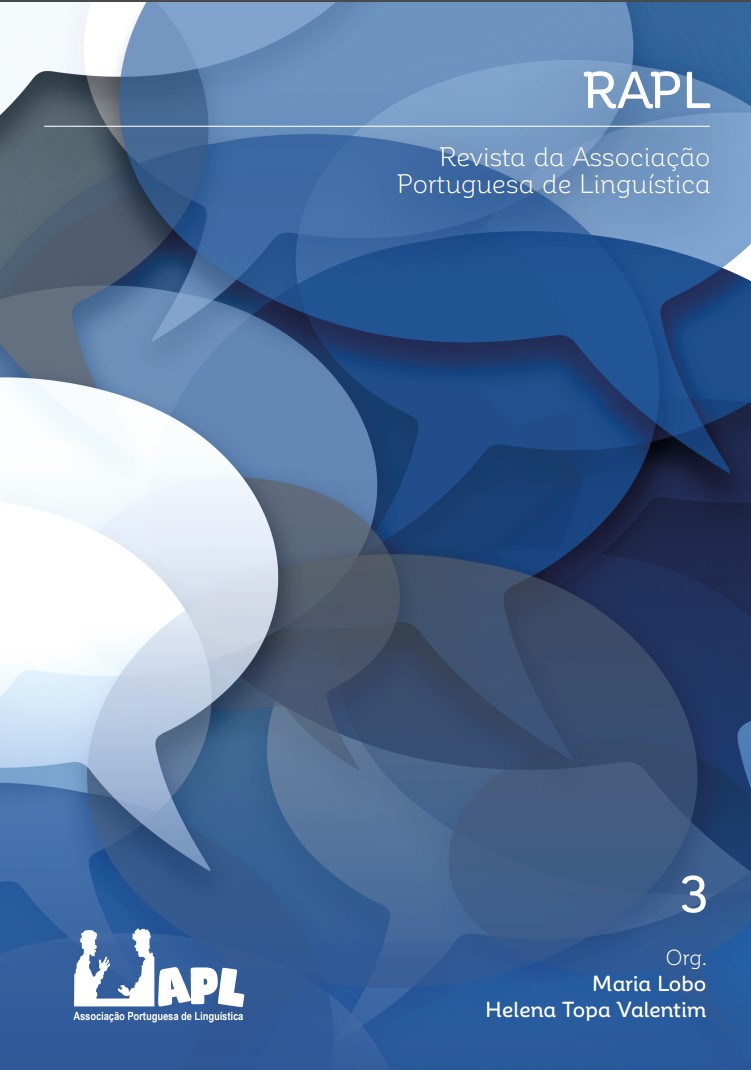Será a interface sintaxe-discurso necessariamente um locus de opcionalidade em L2? O caso da inversão locativa em inglês L2
DOI:
https://doi.org/10.26334/2183-9077/rapln3ano2017a19Palavras-chave:
aquisição de segunda língua, estado final, interface sintaxe-discurso, inversão locativaResumo
This study investigates the acquisition of locative inversion in L1 European Portuguese (EP) – L2 English and L1 French – L2 English. Its purpose is to test two opposing hypotheses on the end-state of L2 acquisition at the syntaxdiscourse interface: the Interface Hypothesis (IH) and the L1+input Hypothesis (LIH). The former proposes that the syntax-discourse/pragmatics interface is a locus of residual, but permanent, optionality, because L2 speakers are less than optimally efficient at integrating syntactic and contextual information in real-time language use as a by-product of bilingualism. The latter, in contrast, sustains that structures at this interface generate problems at highly advanced levels of proficiency iff their properties are different in the L1 and the L2 and the evidence available in the input is not transparent (e.g., because the structure is rare). By administering 2 untimed drag and drop tasks, 2 speeded acceptability judgement tasks and 1 syntactic priming task to a total of 80 participants, we tested, on the one hand, the type of intransitive verb allowed in locative inversion and, on the other, the type of discourse context in which this inversion is admitted. The results disconfirm the LIH and confirm (most of) the IH’s predictions.
Downloads
Downloads
Publicado
Como Citar
Edição
Secção
Licença
Direitos de Autor (c) 2017 Joana Teixeira

Este trabalho encontra-se publicado com a Licença Internacional Creative Commons Atribuição-NãoComercial-CompartilhaIgual 4.0.
Os autores mantêm os direitos autorais e concedem à revista o direito de primeira publicação. Os artigos estão simultaneamente licenciados sob a Creative Commons Attribution License que permite a partilha do trabalho com reconhecimento da sua autoria e da publicação inicial nesta revista.
Os autores têm autorização para disponibilizar a versão do texto publicada na RAPL em repositórios institucionais ou outras plataformas de distribuição de trabalhos académicos (p.ex. ResearchGate).





